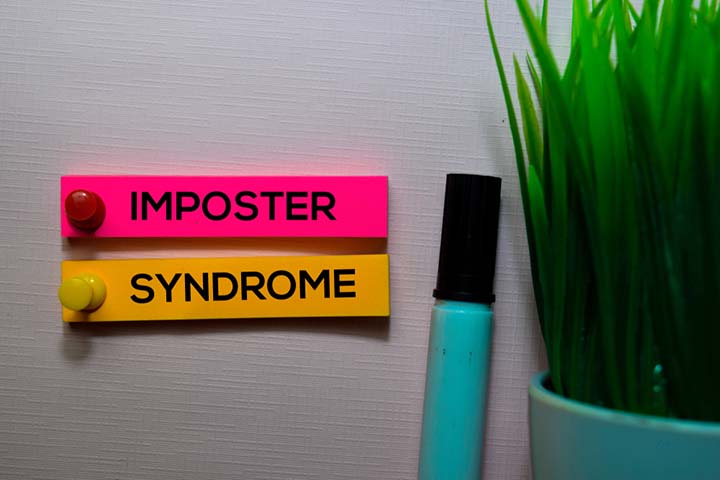July 01, 2022
3 Strategies to Overcome Imposter Syndrome
Many professionals have felt uncertain of themselves at one time or another, but there are ways to combat the feeling that your success is a sham.
Have you ever had a sneaking suspicion that your success is a sham? That your past triumphs were flukes or a string of good luck and that soon your colleagues are going to find out the truth? Unless you’re in some kind of elaborate “Catch Me If You Can” situation, you’re likely dealing with a case of imposter syndrome – a concept first developed by psychologists Rose Clance and Suzanne Imes in a 1978 study.

In the decades since the term was coined, there has been some pushback, specifically that the syndrome didn’t take into account systemic biases – like racism, classism and xenophobia – when it was developed. According to a 2020 review of 62 imposter syndrome studies, anywhere from 9% to 82% of people experience it, with the wide variance depending on the screening tool and cutoff used to assess symptoms. Many people experience symptoms of imposter syndrome for a limited time – perhaps when starting out a new job. For others, it can be a lifelong struggle.
Still have imposter syndrome….every single day.
— Bill Petrie (@billpetrie) June 22, 2022
“I still feel like a fraud every time I publish a blog, record a podcast or speak in front of a group,” says Bill Petrie, managing partner of business services agency Brandivate. But, he adds, “That means I care about the outcome and always give whatever I’m doing my absolute best.”
His strategy: Just push through the uncomfortable feelings and keep going until you find your groove.
Gloria Lafont, president of Action Marketing, an SEO and digital marketing agency for promo distributors, says she’s struggled with imposter syndrome “big time,” especially since her chosen field tends to be a younger, male-dominated space. That “just adds another layer of ‘Who do you think you are to do this?’” she says.
Lafont says she’s learned to recognize and accept her feelings as they arise. “It’s like I take the feeling outside of me as it comes up and sort of place it in front of me to see it, where I realize that it’s not a fact, so I can tell myself, ‘What if I were to do this?’” she says.
If you’re dealing with some nagging feelings of professional unworthiness, try some of these strategies to help overcome your imposter syndrome.
- Keep a journal of your accomplishments. You could even save congratulatory emails from colleagues and clients in a folder to remind yourself of past wins. “Imposter syndrome leads us to believe that we’re not as accomplished or capable as we actually are, and to keep us safe, the brain will sometimes negate wins and accomplishments completely,” says Jillian Parekh, author of “You’re Not Special,” a book about overcoming imposter syndrome. “Make a point to celebrate yourself often, and constantly remind yourself of the good you’ve done and what you’ve achieved.”
- Work on your “mental fitness.” Emotional intelligence is a muscle you have to flex. Try practicing mindfulness techniques to help ground yourself in the present and not get carried away with negative emotions. “Just like when you consistently go to the gym, and over time you’re able to lift heavier weights, by consistently working on your mental fitness, you’ll develop the ‘muscles’ needed to defeat the imposter in you,” says Colin Thompson, founder and president at Oligye Business Consulting.
- Talk about it. “Imposter syndrome hides and thrives in shame,” Parekh says. “You believe you’re the only one who feels this way, but your colleagues, other entrepreneurs and so many people feel like an imposter and think they’re alone. Admitting you’re nervous or unsure of yourself in a safe place allows you to be supported, empowered and encouraged by others, and if anything, it allows them to relate to you if they’re feeling stifled by imposter syndrome too.”
